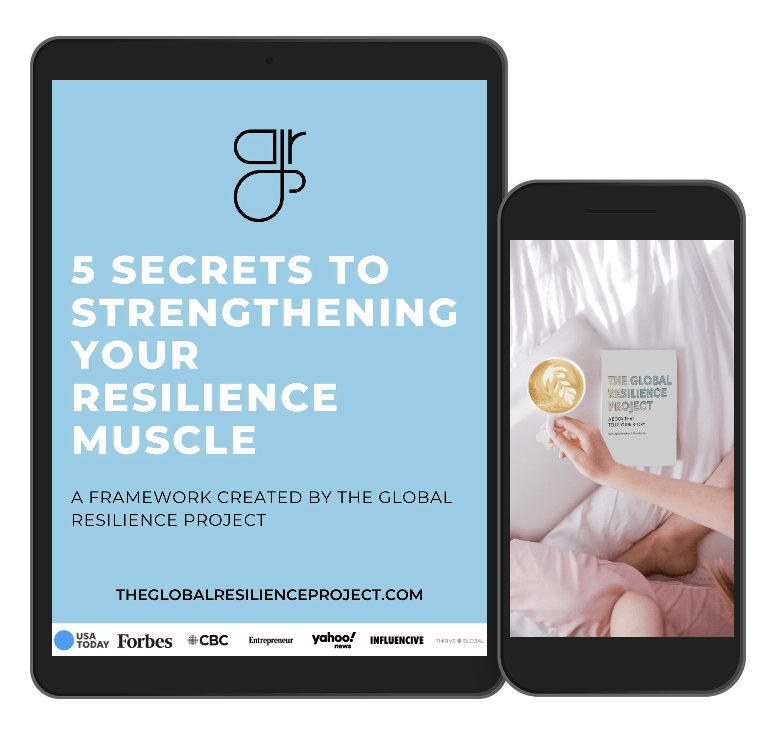This is Jana Kapp and she is RESILIENT.

CONTENT WARNING: The I Am Resilient Project provides an open space for people to share their personal experiences. Some content in this post and on this website will include topics that you may find difficult.
Describe the situation where you had to be resilient:
I suffered three concussions over six years. There wasn’t a particular situation or time that I had to be resilient but through my concussion recovery, I learned how to become resilient.
Jana’s Story
I sustained three concussions over six years, each injury separated by two years and I never really properly recovered between each one. During that time, the information and research about concussions wasn’t as prominent as it is today. Also, there weren’t as many courses available to healthcare professionals to educate them. So, I was lost and not even aware, at the beginning of the first two concussions, if that’s exactly what I was struggling with.
The second concussion I got was a major one and I didn’t have the typical concussion symptoms. I wasn’t having headaches or dizziness or nausea. My main symptoms were extreme fatigue, depression and I was having trouble exercising. The biggest issue for me was that I was having trouble with my emotional regulation and I would burst into tears all of a sudden. Although I’m generally an emotional person, this was a whole new level for me.
When I sustained the third concussion, I started getting more typical concussion symptoms and started realizing what I was experiencing. I’m a physiotherapist and I took a few concussion courses because they were becoming more popular. Also, living in Whistler, a prominent sports area where there is a higher concussion rate, I wanted to be educated. During the courses, I started to realize a concussion is what I was actually struggling with.
From that moment, I started to use my education from my profession to help me deal with what was happening to me in my personal life. There were some roadblocks that I hit and part of what I think I needed to learn was the process of resilience. Sometimes, I had to let go of the black and white reality of what was expected from the recovery. I have a Type-A personality but I had to learn to trust myself, trust my instincts and embrace a different way of healing than I expected.
How did you practice resilience when faced with this challenge?
I knew I wanted to get better and because I was so severely injured, I couldn’t work anymore. I couldn’t really socialize anymore. I couldn’t participate in any type of activity. Part of what I was struggling with was perfectionism because of my Type- A personality.
I would normally just push through an injury and expect that at some point I would get better but part of what I learned was I had to fight that old belief pattern. I had to start trusting myself and knowing that I had to stick to my guns, even though it was really hard, especially in Whistler where it’s financially hard if you are not working.
I had to be resilient in my due diligence of sticking to my path of recovery and go with what my brain was telling me. I could handle each day, each week and each month because I was faced with wanting to live a life I thought I should be living versus the reality of what I could do. That was really hard to come to terms with but I knew that if I stuck to my guns that I would get better and that was my ultimate goal.
I didn’t want to have lingering symptoms and I didn’t want to keep suffering the way I had suffered over almost a decade because I had those injuries. I learned that process of resilience because I stuck to the goal of recovery versus trying to fall into the trap of ignoring it and pushing through.
Please share one piece of advice for people who are going through a similar challenge.
Don’t be afraid of yourself. I had to sit and be with myself a lot and that’s the hard part with concussions. Because I was injured, I couldn’t go skiing, go for a run or go for a bike ride. I had to be with myself and learn that process of trusting myself and being okay with it.
In the end, I learned to like myself more than I did prior to having this injury and so ultimately, the work is worth it. It’s a tough road. It is hard at times and harder at other times but it gets easier as you go and as you build your resilience. It’s like building a muscle if you had a physical injury. The more you practice being resilient, like learning to trust yourself or your intuition, the easier it gets. For me, that’s what it was. So, just keep doing it day-by-day, week-by-week and it starts to become more natural and it’s worth it in the bigger picture.
Are you ready to share your story of RESILIENCE? You can do that HERE and thank you for being brave and sharing your journey.

